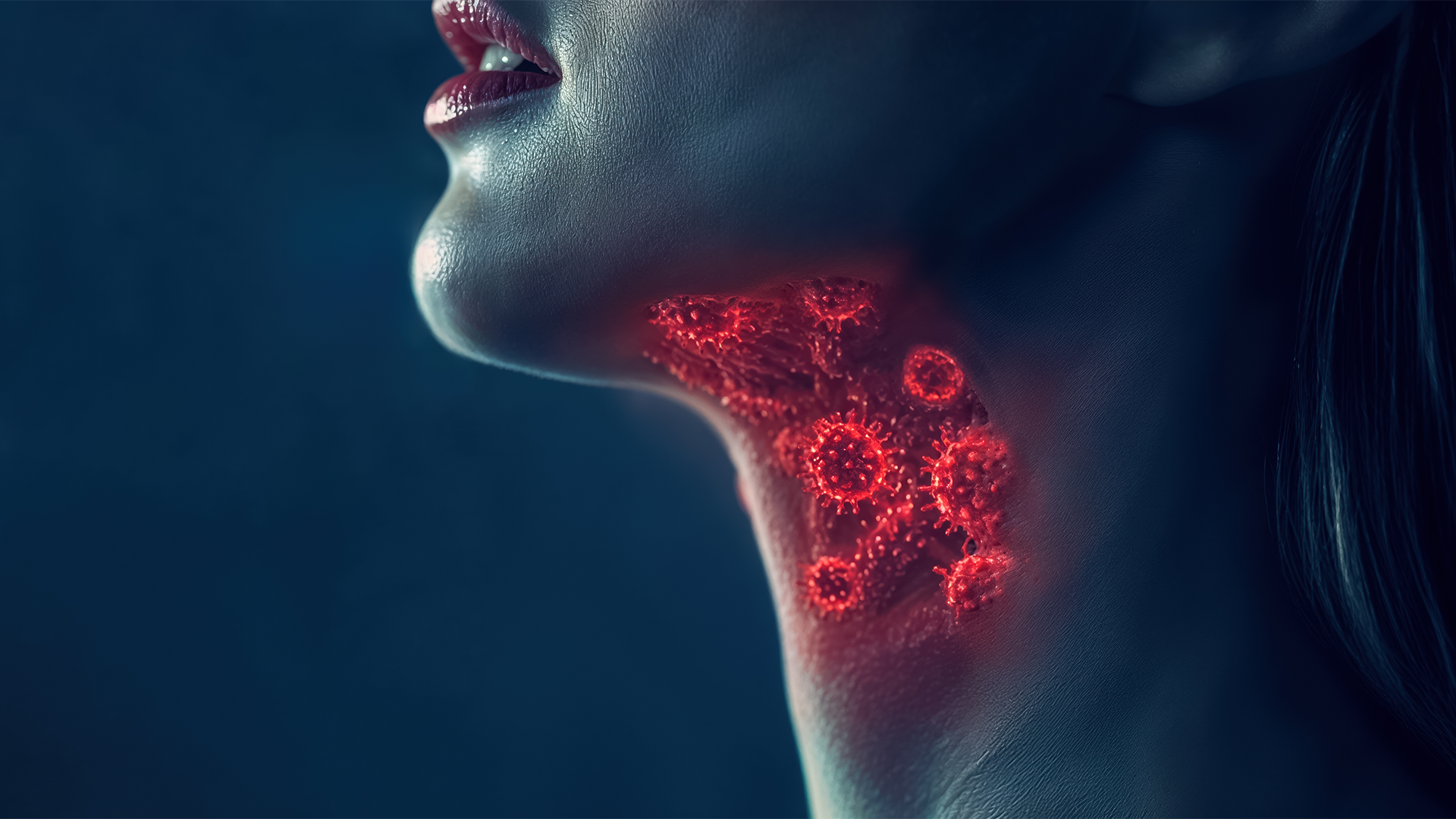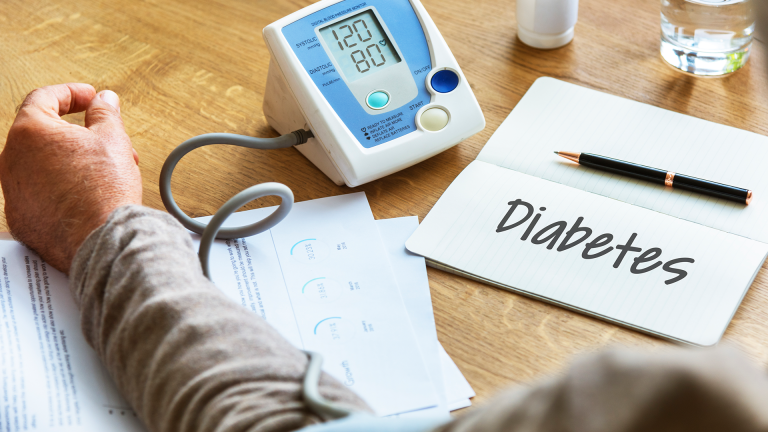Thyroid gland:
It is a small butterfly-like gland present in the neck below Adam’s apple. It is part of the endocrine system and produces thyroid hormone, which coordinates several functions in your body.
Hashimoto’s Disease:
It is also called chronic lymphocytic thyroiditis. This is a common disease in which the body’s immune system attacks the thyroid gland, leading to an underactive thyroid disease called hypothyroidism.
What causes Hashimoto’s:
It is unclear what causes this immune attack; however, many scientists believe bacterium or virus may trigger Hashimoto’s thyroiditis.
Risk factors
There are risk factors which can increase one’s risk for developing Hashimoto’s disease:
- Sex. Women have a higher prevalence of Hashimoto’s disease.
- Age. Usually, middle age 20-40s have a higher risk for Hashimoto’s disease.
- Heredity.Genetic makeup which is reflected by the family history
- Radiation exposure. Excessive levels of environmental radiation may also increase the risk of development of Hashimoto’s disease.
- Other autoimmune diseases. Those with type 1 diabetes, rheumatoid arthritis, lupus, etc. have a higher risk of developing Hashimoto’s disease.
Symptoms:
Hashimoto’s disease is a slowly progressive disease that may present without symptoms or enlarged thyroid gland called a goiter. The patient may experience several symptoms, such as:
- Fatigue
- Increased cold sensitivity
- Pale, dry skin
- A puffy face
- Constipation
- Hair loss
- Enlargement of the tongue
- Brittle nails
- Joint pain and stiffness
- Unexplained weight gain
- Muscle aches, tenderness, and stiffness
- Abnormal menstrual bleeding in women
- Muscle weakness
- Memory lapses/issues
- Depression
- High cholesterol
Complications
Left untreated, Hashimoto’s Hypothyroidism can cause several health problems:
- Goiter: Hypothyroidism can cause goiter – an enlarged thyroid gland due to constant thyroid stimulation to produce more thyroid hormone. This is usually painless; however, the enlarged gland may cause cosmetic issues as well as symptoms of difficulty in swallowing or breathing.
- Heart problems. Hashimoto’s disease can lead to heart failure, slow heart rate, and increased LDL – the bad cholesterol.
- Sex life and Menstrual periods: Hypothyroidism, if not optimally treated, can lead to decreased sexual desire (libido) in both men and women. It also results in menstrual irregularities in premenopausal females.
- Mental health issues. Depression and mood problems are widespread among untreated Hashimoto’s hypothyroidism patients. Some patients may also have sleep disturbances.
- Birth defects and miscarriage. Untreated Hashimoto’s Hypothyroidism can lead to miscarriage in pregnant females. Since the thyroid hormone is important for the baby’s brain development, low thyroid levels lead to intellectual and developmental problems in children. Infants may also suffer from congenital disabilities as well as heart and kidney problems.
- Myxedema: This is a rare medical emergency, caused by long term severe untreated Hashimoto’s hypothyroidism. It can lead to drowsiness, lethargy, unconsciousness, and death.
When to see a doctor
If you have Hashimoto’s signs and symptoms, you should discuss it with your doctor to check thyroid labs. If you have high cholesterol (hyperlipidemia), autoimmune disease such as Diabetes Type 1, RA, Lupus, etc, or are pregnant, you should also get screened for thyroid level. Once you are on thyroid medication, and if the symptoms do not resolve for the next 3-6 months, it would be a good idea to consult an endocrinologist to help optimize your thyroid replacement.
Diagnosis
Diagnosis of Hashimoto’s disease is based on blood tests:
- A hormone test.TSH – Thyroid Stimulating Hormone is produced by a Pituitary gland, a small pea-sized gland (master switch) present under the brain, that controls the thyroid gland. It is usually high as it detects the thyroid levels are low.
- Free T4: this is an active form of thyroid hormone. It is usually the low or lower end of the normal range.
- T3 – it is recommended not to check T3 levels as short-lived and may not reflect the body’s actual thyroid levels.
- An antibody test. Since Hashimoto’s disease is an autoimmune disorder, there is increased production of abnormal antibodies.
Treatment:
Hashimoto’s disease treatment may include observation or thyroid replacement medications. Your doctor will decide based on clinical and laboratory data.
Synthetic hormones:
Hashimoto hypothyroidism is treated with thyroid replacement. It includes the most commonly prescribed generic synthetic thyroid hormone levothyroxine or brand name Levoxyl, Synthroid, and Unithroid.
Synthetic levothyroxine is identical to naturally made thyroid hormone, thyroxine (T4) in our body. Levothyroxine is a very inexpensive drug.
Monitoring the dosage
Once your doctor starts you on thyroid replacement, you will have thyroid labs checked every six weeks till your thyroid dose is optimized. Once you are on the right thyroid dose, thyroid labs are checked every 6-10 months. Overtreatment of thyroid can lead to bone loss (osteoporosis), weight loss, and heart rhythm disorders (arrhythmias such as Atrial Fibrillation). Please note that the American Thyroid Association recommends against the overtreatment with thyroid replacement for weight loss.
Usually, patients will need lifelong thyroid replacement. If your levels are normalized, you will even need to take your thyroid medication. Levothyroxine does not cause side effects when appropriately dosed. Over time your dose may need to be tweaked. Weight changes also affect thyroid dose requirements.
Biotin: Avoid taking biotin as it interferes with thyroid labs, resulting in under and over the treatment of thyroid diseases.
How to take thyroid medication correctly.
- Empty stomach – better in the morning.
- Take it with plain water (avoid coffee or other drinks)
- Do not mix with other meds. Wait for at least 45 mins.
- Give 45 min before you eat meal/food.
Medication interactions:
Several medications can interfere with thyroid absorption:
- Heartburn medications like PPI – (e.g. omeprazole, pantoprazole)
- calcium or aluminum-containing supplement e.g. Tums or certain antacids
- Sucralfate, an ulcer medication
- Cholestyramine, a cholesterol-lowering medication.
If you take these medications, you should try to take them in the afternoon or evening, but not close to thyroid meds.
Is a combination of hormones needed?
Levothyroxine is a synthetic version of Thyroxine (T4), converted to T3 as needed in the body. Some patients may not have their symptoms resolved with just T4 replacement and may benefit from Cytomel (liothyronine, T3) and the thyroid T4 replacement. However, the research is on-going, and the benefits are limited. T3 replacement may increase heart rate, anxiety, and sleeping disturbances.
Alternative medicine
Levothyroxine is the standard treatment for Hashimoto’s disease. However, combination (T4 and T3) therapy with Armour Thyroid or Nature thyroid is also used in selected patients. Some physicians have safety concerns regarding these formulations as the beneficial literature is limited; however, if used by an experienced physician under certain conditions when appropriately monitored, Armour thyroid effectively improves hypothyroidism symptoms and life quality.
Thyroid Vitamin Supplements/ Over the counter thyroid supplements:
It is strongly recommended to avoid any such supplements as the thyroid quantity may not be standardized. It can lead to over or under treatment, hence increasing the risk of complications.
Photo credits: Anis Rehman – Yellowstone National Park, Montana.



